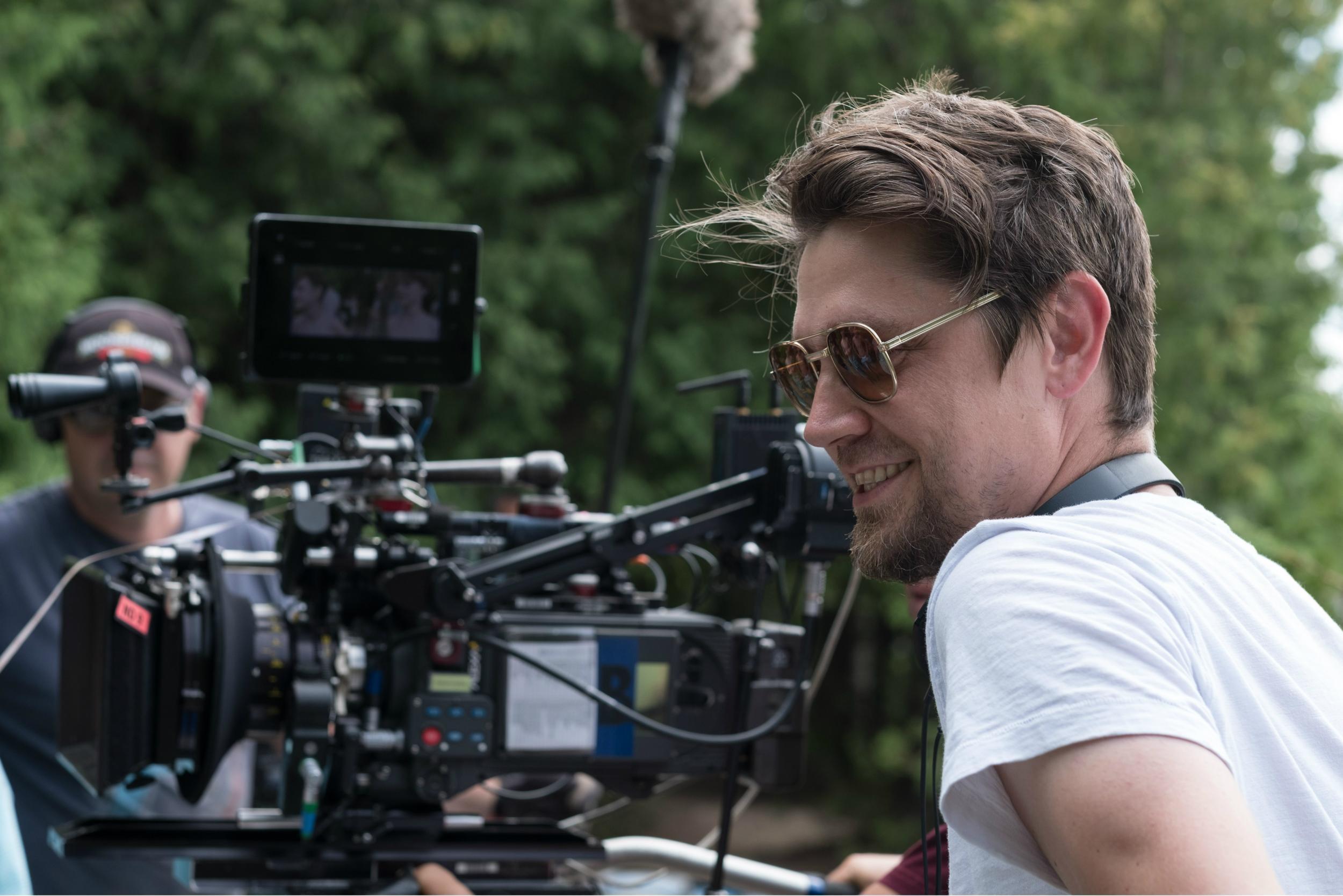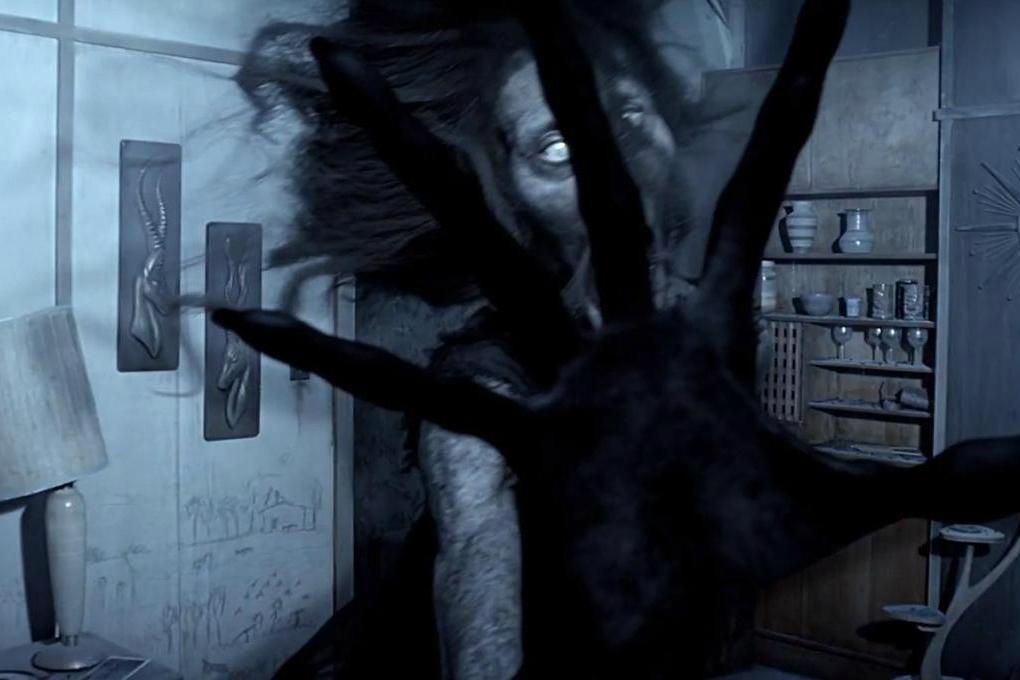It interview: Director Andy Muschietti on staying true to the spirit of Stephen King
Plus Bill Skarsgård going the extra mile, Steven Spielberg's influence, and his plans for Chapter II

I had to commence my interview with It director Andy Muschietti with a mildly embarrassing confession: I’d never read Stephen King’s brick of an original novel, neither was I part of the generation that seems so traumatised by the 90s mini-series. I was losing my It virginity to its 2017 cinematic adaptation; not that it ended up mattering much, since I was just as petrified in the end.
However, it did make me realise what an unusual challenge Muschietti faced here: adapting a beloved book, that in turn became a beloved mini-series, despite the two being worlds apart in so many ways. How does one film attempt to balance the expectations of such a widely variant audience: to please fans of the book, fans of the mini-series, fans of both, and fans of neither?
To Muschietti, there wasn’t much to do except put all those expectations to one side. “It would be such a difficult thing to anticipate,” he confesses over the phone. “But, for me, Stephen King’s book is so complete, in a way, that you don’t try to make a faithful adaptation of it. You make a movie that would stand in its own right, and people will get it. It wasn’t easy in the sense that the story is so rich: it’s a 1,200-page book. It’s not like a normal movie.”
“You would never walk into a studio and try to pitch a movie where they’re fighting an evil clown who eats children, and there’s sexual abuse, but also very funny bits,” he continues. “It’s a bit ridiculous as a concept for a movie, but the truth is that Stephen King made an incredible, memorable, and beautiful story, and I tried to stay true to the spirit of it.”
Muschietti, in fact, admits his own personal history with King’s novel was crucial in his approach to the film, especially when it was time to convince Warner Bros. of his vision, first coming aboard the project after True Detective’s Cary Fukunaga stepped down over supposed creative disagreements over the film’s narrative.
“My ideas were very connected to the emotional experience I had reading the book for the first time many, many, many years ago,” Muschietti says. “And I sort of combined it with my impression of the book reading it as an adult, which gave me a different perspective. The studio was incredibly open and accepting of all this, they really wanted to trust my instincts.”
“And, basically, the test was really pitching them my vision of the movie and all the structural changes and details, and they got excited about it. And, from then on, once they bought it, they left me alone in the creation of the world, because they fully understood that I was interested in keeping the spirit of the original book.”
One element Muschietti was keen to extract from King’s novel, in a way somewhat neglected by the miniseries, was the fully realised concept of Pennywise as a force of elemental evil escaped from another dimension, only nominally choosing the form of a clown to terrorise its victims.

It’s a being entirely unknowable, mythic, and unpredictable; far more than just a simple trigger for coulrophobia. “I think what’s great about the book is that everything we know about the monster, it comes from the kids’ speculation,” the director explains. “So we don’t know what It is. It’s all shrouded in mystery and uncertainty, and that’s what makes the threat so cool.”
It is a facet really brought to the forefront by Bill Skarsgård’s frantic, twitchy performance; miles away from his famous predecessor. “Tim Curry, as great as his performance is; he plays a pretty familiar, rowdy clown that’s always playing the same notes.”
After a pitch-perfect imitation of Curry’s growls of “Bucko!”, Muschietti moves on to praise his star’s ability to inhibit the idea that “he’s coming from the other side and he’s not human.” He adds, “He took that unpredictability to the limit, to the point that he was doing a different thing on every take.”
As a novice to the world of It, I essentially came to the film as a fan of Muschietti’s previous (and debut) film Mama. And It does seem to slide comfortably into that uncertain, undefined genre that links the styles of so many Spanish and Latin American horror filmmakers.
It never felt like a coincidence that all my favourite recent works of horror happened to be produced by just such directors: from Mama to J A Bayona's The Orphanage, Alejandro Amenábar's The Others, or Guillermo del Toro's The Devil's Backbone.
It's a style that seems enamoured by the Gothic tradition, but that extends its meaning far beyond aesthetics and to its core belief that supernatural is actually an echo of emotion, of long-gone passions that still stain the walls. I’m curious as to what Muschietti makes of this, but his answer reveals an interesting milieu of cultural influences.

He credits folklore, to some degree, which is markedly different in Latin American culture than in Anglo-Saxon; also, to the Latin American writers that he and many in his circle grew up with – after all, it was with them that the genre of magical realism first blossomed. Yet, he’s also eager to stress just how much Hollywood has shaped his career, and the careers of so many of his fellow filmmakers.
“It’s hard to find one of them that doesn’t have Steven Spielberg as a major influence in the way of understanding story and filmmaking, because he has such a strong emotional element to all his stories," he explains. He credits also the power of King’s own work, alongside directors such as John Carpenter and Joe Dante. Really, in his eyes, all these elements carefully came together to shape what he, at least, has become as a filmmaker today.
With It already posed for monumental success at the box office, talk will inevitably turn to Warner Bros.’ plans for Chapter II. Muschietti himself is playfully sly about the news, but is at least eager to discuss what he envisions for the sequel, especially when I ask him about the challenges of shifting to the Losers’ Club in their adult years, considering It is a film so deeply about the nature of childhood.
“In my opinion, it can’t only be about adults,” he says. “Something that I love about the book is the dialogue between the two timelines because, ultimately, it’s a story about childhood. It’s a love letter to childhood, but it’s also a story of the death of childhood. It’s symbolic, of course, because when Pennywise describes himself as the eater of worlds, he’s not talking about a monster that eats planets; he’s talking about eating the world of imagination and magic.”
He adds, furthermore, that flashbacks are an essential part of any Chapter II, since the story involves the Losers’ Club recovering their memories to gain clues about how to beat Pennywise. His only real concern about the sequel? “I’m only hoping that the kids don’t grow up.”
It is in UK cinemas now.
Bookmark popover
Removed from bookmarks